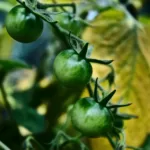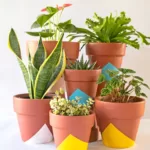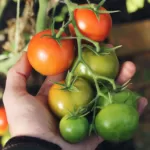Is Vinegar Good For Plants?
Are you looking for a way to help your plants thrive and stay healthy? Have you heard that vinegar is good for them, but aren’t sure if it’s true or not? Well, let me tell ya – I’ve done some digging on the subject and I’m here to share my findings with you!
In this article, we’ll be discussing whether or not vinegar can actually benefit your plants. We’ll look at how it works, what kind of effects it has on plant growth and health, and why so many people swear by it. Plus, we’ll also talk about any potential risks associated with using vinegar in gardening.
So grab yourself a glass o’ vino (or two), kick back, relax…and let’s get down to business! Who knows – maybe we could even have a bit of fun while we’re at it 😉 …and learn a few tips and tricks to make our gardening experience even better!
Definition Of Vinegar
Vinegar is like a wolf in sheep’s clothing—it looks harmless, but it can have powerful effects. Vinegar is an acidic liquid made from fermented fruits or grains that has been used for centuries for various purposes. By definition, vinegar is simply any type of sour-tasting liquid made by the fermentation of ethanol and acetic acid bacteria. It helps preserve food as well as being used to make sauces, dressings and marinades. In terms of its meaning, vinegar symbolizes bitterness and disappointment due to its tart taste.
When looking at the explanation behind what makes up vinegar, it’s composed mainly of water and acetic acid with small amounts of other acids such as citric, formic and lactic acid. Depending on where you are in the world will depend on how much acetic acid is found in vinegar as there isn’t one single international standard for what constitutes ‘vinegar’. This means some vinegars may contain more than others which affects their flavor profile accordingly.
In essence, vinegar is a special product that not only adds great flavor to food but also has many practical uses too! Its versatility means it can be utilized both domestically and commercially. Without further ado, let’s discover all the benefits of using vinegar when caring for plants…
Benefits Of Vinegar For Plants
I’m sure you’ve heard of vinegar and its many uses, but did you know it can benefit your plants too? Vinegar is a great way to promote plant growth and reduce pests. It’s an inexpensive solution that provides numerous benefits for both the plant and the environment. So let’s take a look at some of the ways in which vinegar can help keep your garden looking gorgeous!
First off, vinegar helps with weed control. Applying a mixture of vinegar and water directly onto weeds will effectively kill them without harming nearby plants or grasses. This makes it easier to manage overgrown areas without having to resort to chemical herbicides. Additionally, using this natural method means there are no hazardous chemicals entering our soil or waterways – something that all gardeners should be aware of.
Secondly, applying diluted white vinegar as a foliar spray on leaves can help protect against fungal diseases like powdery mildew. By killing spores before they infect, you can prevent damage from occurring and ensure healthy foliage throughout the growing season. In addition, regular applications of vinegar around the base of plants act as an effective deterrent against slugs and snails; these pesky critters don’t stand a chance when faced with the pungent smell!
Finally, adding just one tablespoon of apple cider vinegar (ACV) per gallon of water during watering sessions has been known to increase nutrient uptake by up to 50%. This extra boost helps make sure that your plants get everything they need for optimum growth and health without any added fertilizers or synthetic additives. When used correctly, ACV is an incredibly powerful tool for ensuring strong root systems and lush foliage; it really does have superpowers!
In short, there are plenty of reasons why incorporating vinegars into your gardening routine can provide superb results. The next step is learning about which types of vinegars are suitable for use on plants…
Types Of Vinegar Suitable For Plants
Ah, vinegar! It’s a pantry staple that can be used for so much more than just salad dressings and pickling. In fact, vinegar is an effective way to care for your plants. But which type of vinegar should you use? Let’s take a look at the types of vinegars suitable for plants:
- Apple Cider Vinegar – This type of vinegar has acidic properties that can help keep pests away from gardens. It also helps maintain soil pH levels when added in small amounts.
- White Vinegar – This one may not come as a surprise, but white vinegar is often recommended as an easy-to-find option for gardening needs. Its strong acidity makes it great for killing weeds or cleaning garden tools.
- Balsamic Vinegar – Besides being excellent on salads, balsamic vinegar can actually help nourish soils with its high mineral content and sweet aroma. However, it should only be used in very small amounts due to its highly concentrated nature.
- Red Wine Vinegar – Like balsamic, red wine vinegar is good for adding minerals to soil and improving drainage while reducing water loss through evaporation. Plus, its ability to reduce alkalinity makes it useful around alkaline loving plants like rhododendrons and azaleas.
- Rice Vinegar – Another mild form of this condiment contains hinokitiol, an antibiotic compound found in many plant species including rice itself. It helps protect against fungal diseases such as powdery mildew and root rot by suppressing their growth and spreading spores.
So there you have it – five types of vinegars that are suitable for plants! Now let’s move onto how to use them…
How To Use Vinegar On Plants
Using vinegar on plants can be a great way to help keep them healthy and pest-free. But you have to know the right concentration, application, frequency, and dilution in order for it to work properly. Here’s what you need to know when using vinegar on your plants!
When talking about concentrations of vinegar for plant use, start low. A good place to begin is with 1 part vinegar to 10 parts water – diluting further if necessary. This should be enough for most applications, but depending on how strong the infestation is, you may need more or less.
As far as application goes, spray any affected areas directly with the solution (or pour onto soil). Use caution not to get too close since it can damage leaves if sprayed from too high up. Also avoid spraying in sunlight – do this either early in the morning or late at night when there’s no direct sun on the plants – otherwise it could cause burning of foliage.
Finally, consider frequency and timing when applying vinegar solutions. Depending on severity of problem and type of plant being treated, weekly treatments might be enough; however certain insects require multiple applications over time before they are effectively controlled. Keep an eye out for signs that indicate continued treatment will be needed such as damaged leaves or other evidence of insect activity.
Now that we’ve covered how to use vinegar correctly on plants, let’s move onto precautions one must take while doing so…
Precautions When Using Vinegar On Plants
It’s important to take precautions when using vinegar on plants. Depending on the type of plant, you could end up with disastrous results if too much is used. So it’s best to start off small and increase based on your desired outcome. It’s also a good idea to research what kind of plant variety you have before applying any sort of treatment. That way, you can tailor your approach specifically for that particular species.
When using vinegar treatments on plants, always use caution and moderation – otherwise, you’ll risk damaging or even killing them! You should never apply undiluted white vinegar directly onto the soil or leaves of any plant as this will most likely result in burning and wilting due to its high acidity levels. Instead, mix it with water at a rate of 1 part vinegar to 10 parts water; depending on how sensitive the plant is to acidic solutions. Additionally, make sure not to over-water treated areas as this can lead to other issues like root rot down the road.
Although there are some risks involved when dealing with vinegars, they do offer many benefits such as helping deter pests and improving soil drainage; both which contribute heavily towards keeping your plants healthy and thriving year round. With that being said, it’s wise to be mindful of these potential dangers while still taking advantage of all the advantages vinegar has to offer when caring for our beloved greenery!
Examples Of Plant Varieties Benefiting From Vinegar Treatments
Yes, indeed – is vinegar good for plants? Well, if you’re looking to give your geraniums, begonias, impatiens, roses and petunias a bit of extra love this season then the answer just might be affirmative. Think about it like this: It’s almost like giving your plant buds an old-fashioned tonic from grandma!
Vinegar can help increase acidity in the soil which helps promote healthy root growth among other things. This makes it an ideal choice for many flowering varieties such as camellia and rhododendron that need acidic soil conditions to thrive. Similarly, some vegetables also prefer slightly more acidic environments such as potatoes or bell peppers so adding a splash of vinegar to their watering can really make them happy campers (and tasty dishes too!).
Finally, using diluted white vinegar on certain kinds of houseplants will help reduce fungus gnats by killing off larvae found in moist soils. Not only does this keep your plants healthier but it also gives peace of mind knowing there won’t be any pesky insects taking up residence near your favorite blooms. So why not try out a little vinegary goodness next time you water? Who knows, your green thumb may thank you later!
Alternatives To Using Vinegar On Plants
Now that we’ve discussed the benefits of using vinegar on plants, let’s take a look at some alternatives to consider. From diatomaceous earth to liquid seaweed and neem oil, there are plenty of options available. Let’s explore each one further by comparing their pros and cons in this table:
| Product | Pros | Cons |
|---|---|---|
| Diatomaceous Earth | Organic; Safe for human consumption; Controls many pests naturally | Can be harmful when inhaled |
| Compost Tea | Cheap & easy to make; Improves soil fertility; Provides nutrients to plants | Requires regular application |
| Liquid Seaweed | High nutrient content; Supports plant growth without toxicity or residue buildup | Expensive compared to other products |
| Neem Oil | Controls common garden pests with minimal risk of harming beneficial insects & animals | Can cause leaf burn if used incorrectly |
| Fish Emulsion | Provides essential micro-nutrients like nitrogen and phosphorus for better yields | Strong odor can be off-putting |
There you have it – five great alternatives to using vinegar on your plants! Each has its own unique set of advantages and disadvantages that should be taken into account before making a decision. Diatomaceous earth is an excellent choice for controlling pests organically, while compost tea offers an inexpensive way to boost soil fertility. Liquid seaweed provides high levels of nutrition but could get pricey over time. Neem oil is ideal for pest control, as long as you use it correctly. Finally, fish emulsion can provide valuable micronutrients for improved crops, but may not be suitable due to its strong smell. With these alternatives in mind, you now have everything you need to choose what’s best for your plants!
Conclusion
In conclusion, using vinegar on plants can be a great way to provide them with additional nutrients and help keep away pests. It’s important to remember that not all types of vinegar are suitable for use in the garden, and too much can cause harm. When used correctly, though, it is an effective way to give your plants an extra boost of nutrition and protection from insects. Just like adding salt to a meal brings out its flavor, so does a judicious application of vinegar enhance the health and vigor of our beloved plants!
So if you’re looking for a natural solution for pest control or just want to give your plants some added nutrition without resorting to chemical fertilizers, consider giving vinegar a try. With careful research and proper application techniques, it may be the perfect addition to your gardening routine.
Vinegar has been used as an organic fertilizer for centuries due to its versatility, effectiveness, and easy availability – so why not give it a shot? Who knows? You might just find yourself pleasantly surprised at how much healthier your plants become after giving them “a spoonful of sugar…errr vinegary goodness”!




